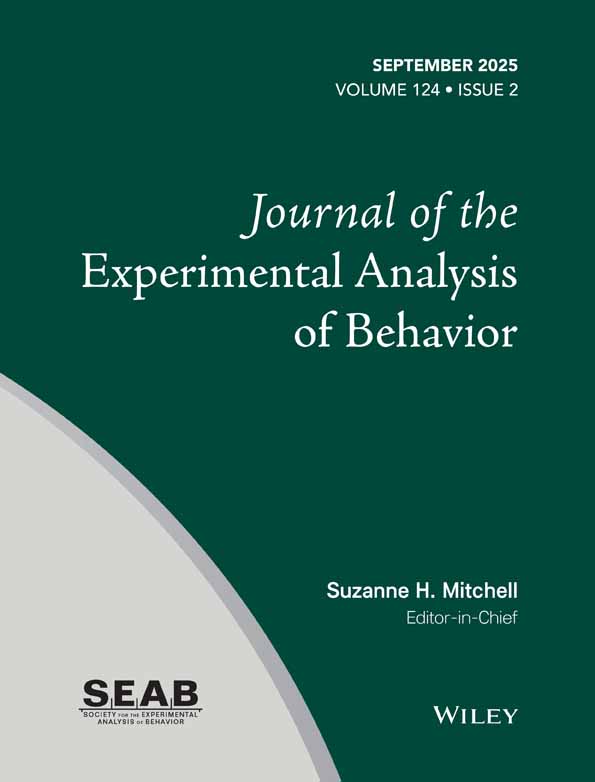ECCENTRIC STIMULI ON MULTIPLE FIXED-INTERVAL SCHEDULES1
This research was supported by grants from the National Science Foundation and the National Institute of Mental Health, USPHS, to Duke University (J. E. R. S., Principal Investigator).
Abstract
The effects of presenting a different (“eccentric”) stimulus for one interval during either or both components of a cyclic multiple fixed-interval fixed-interval schedule, with 12 short and four long intervals per cycle, were studied in three experiments. Eccentric stimuli in the short-interval component reliably produced a persistent, substantial elevation in key-peck rate. The effect appears to depend on schedule context and an initial “disinhibiting” effect of the eccentric stimulus.




